Winter White Coats
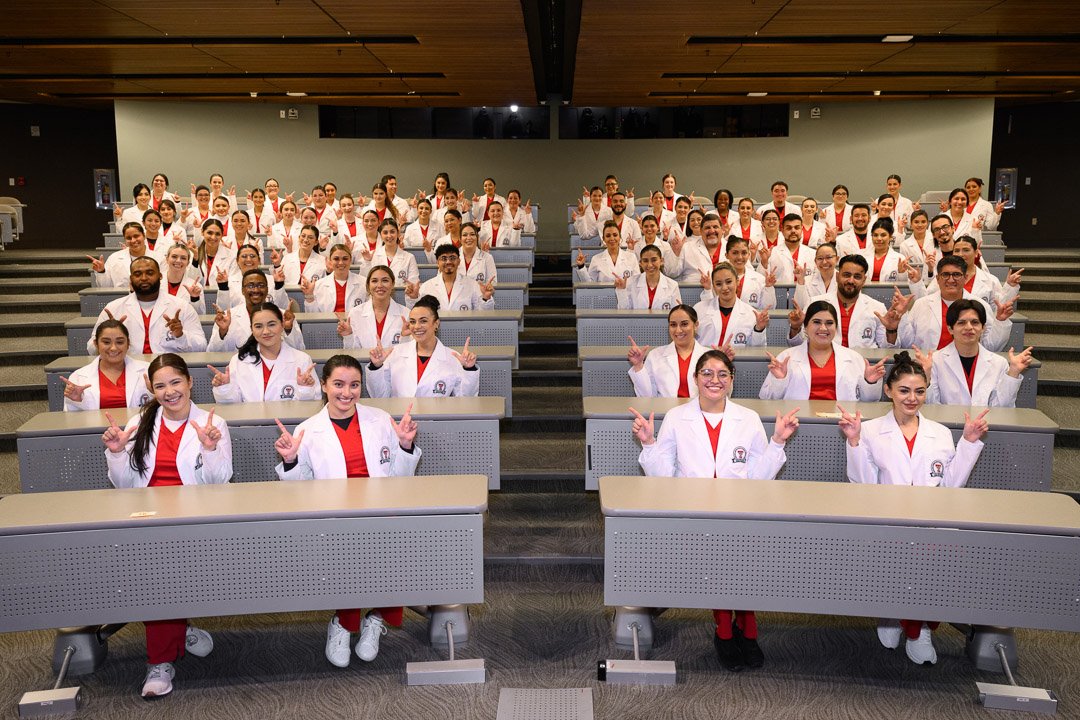
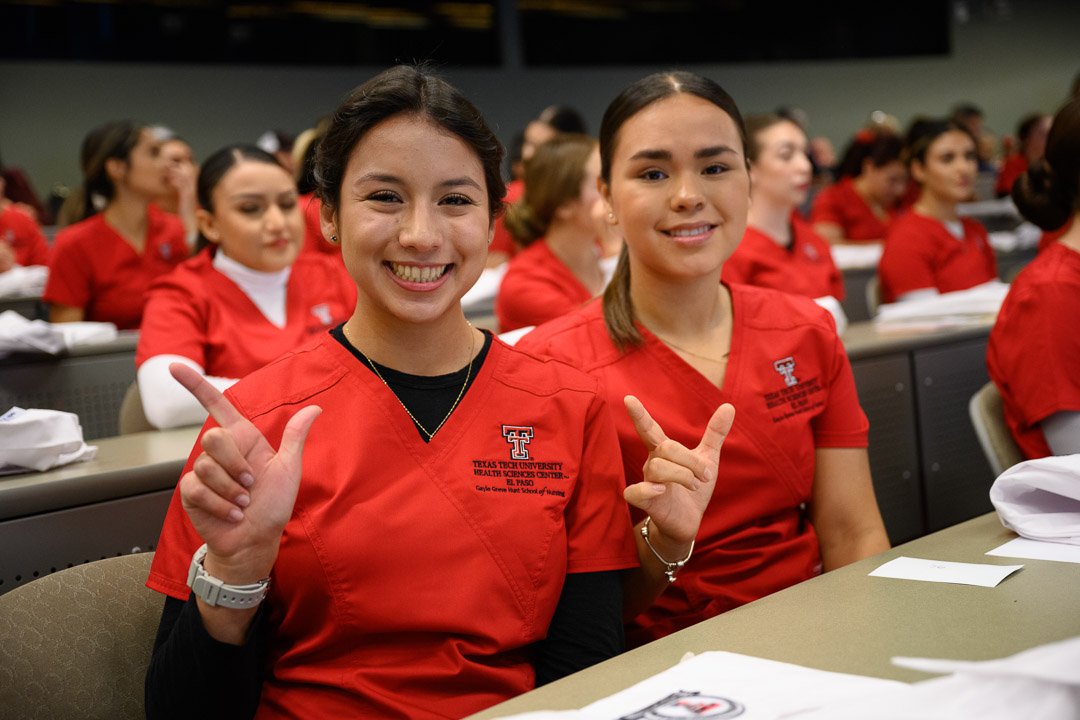
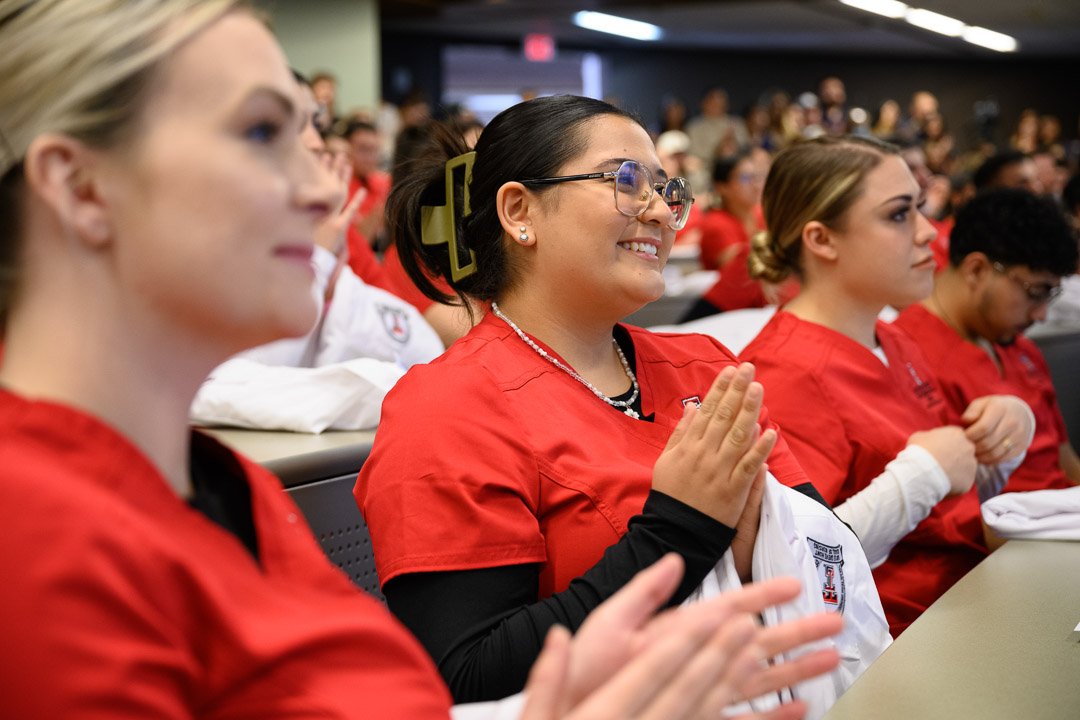
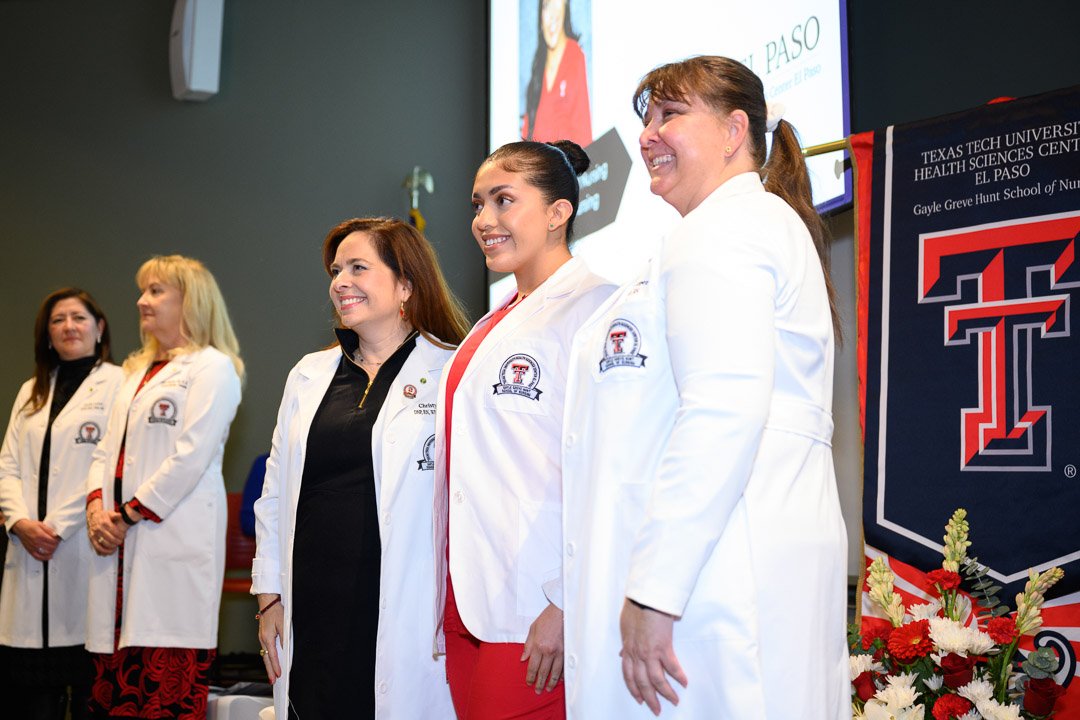
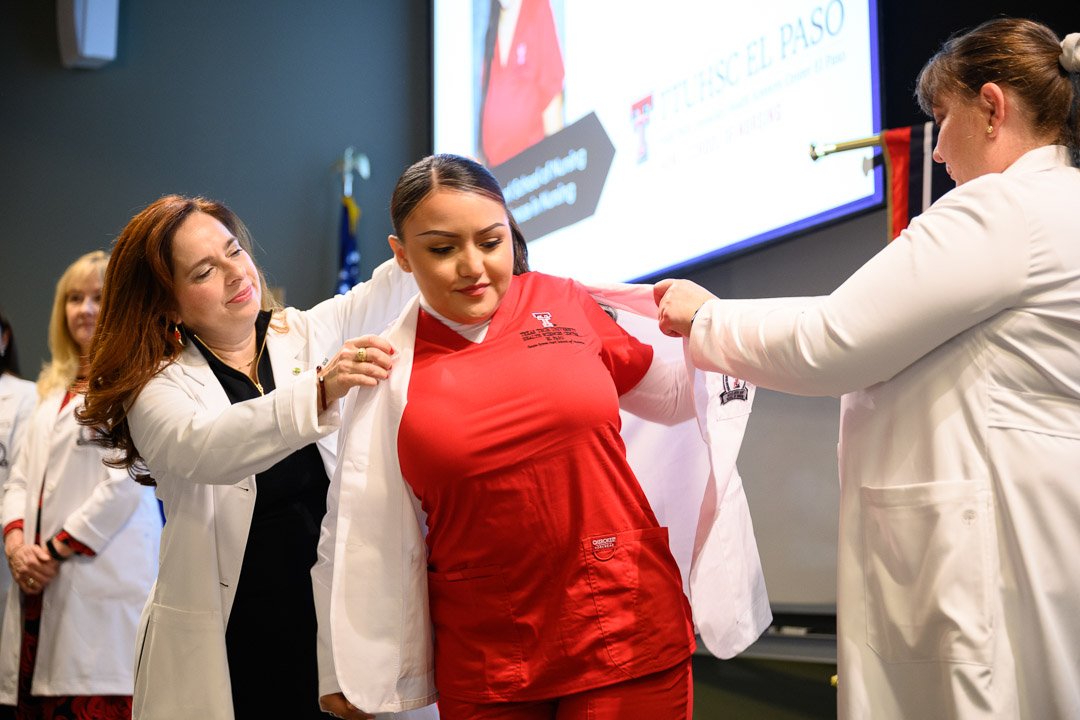
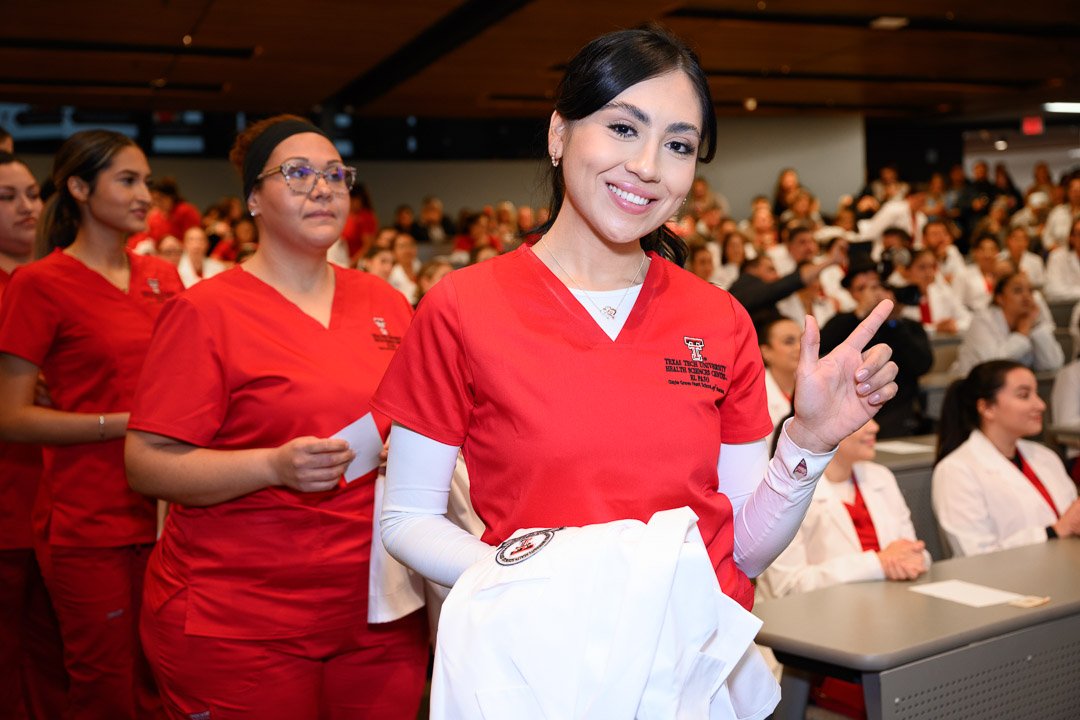
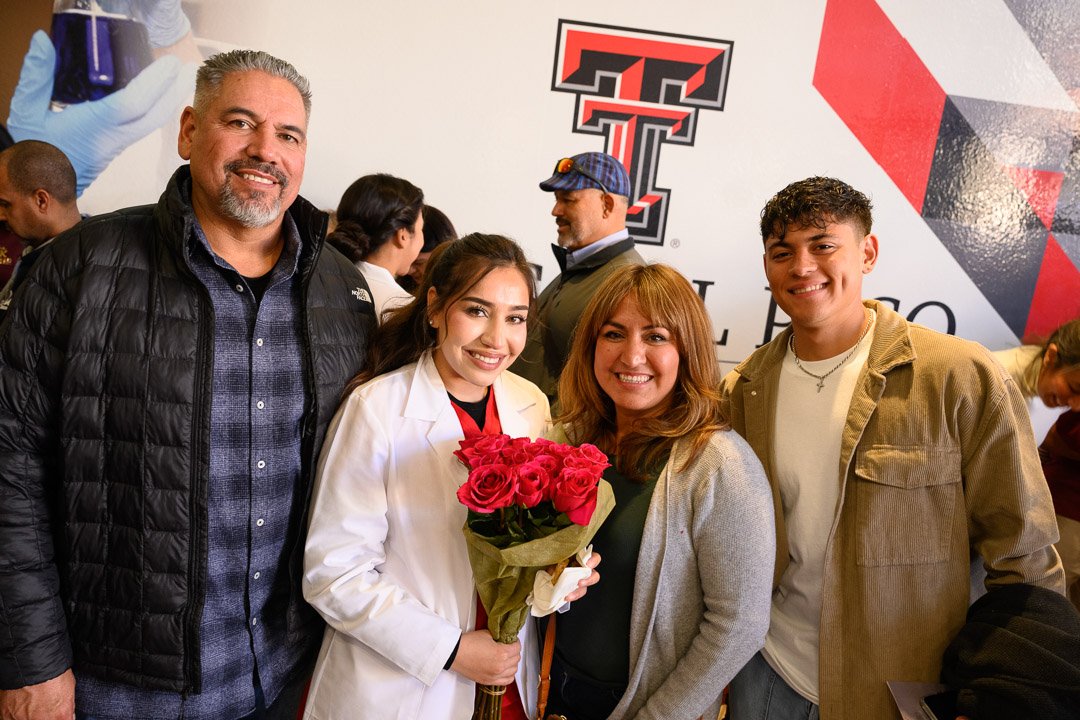
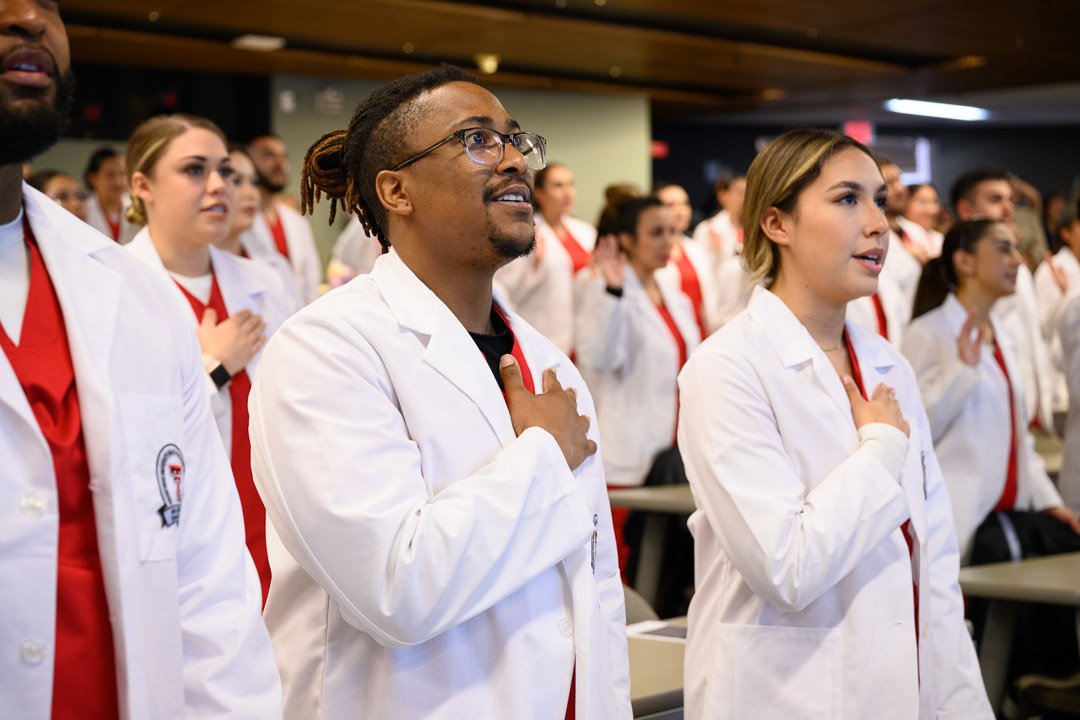
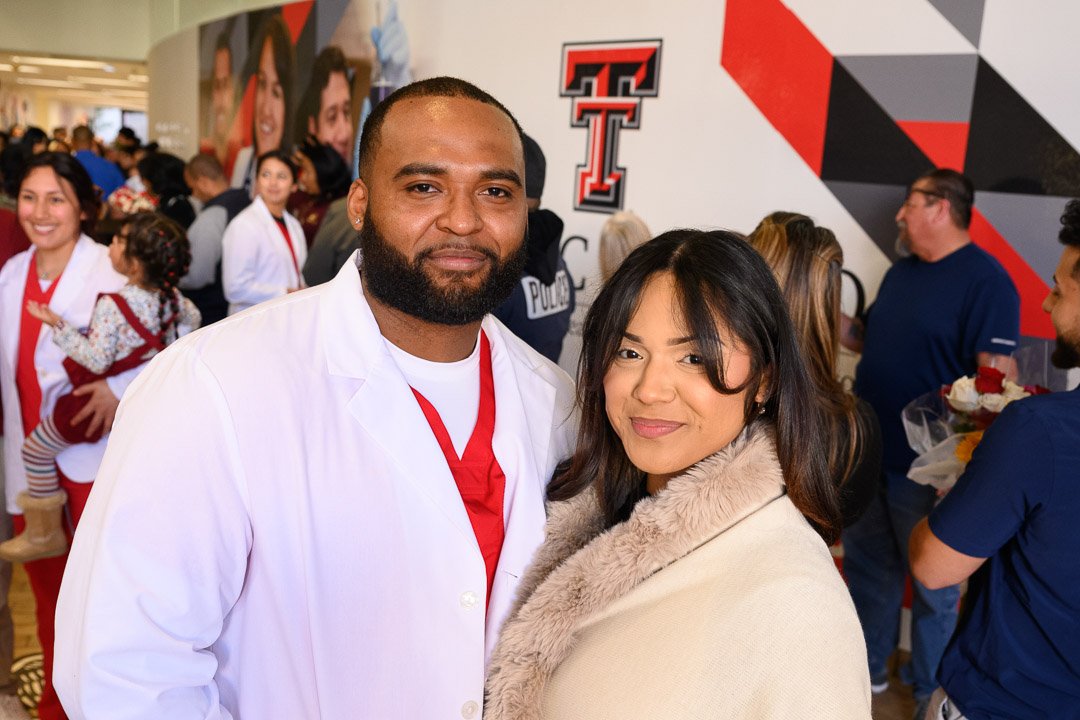
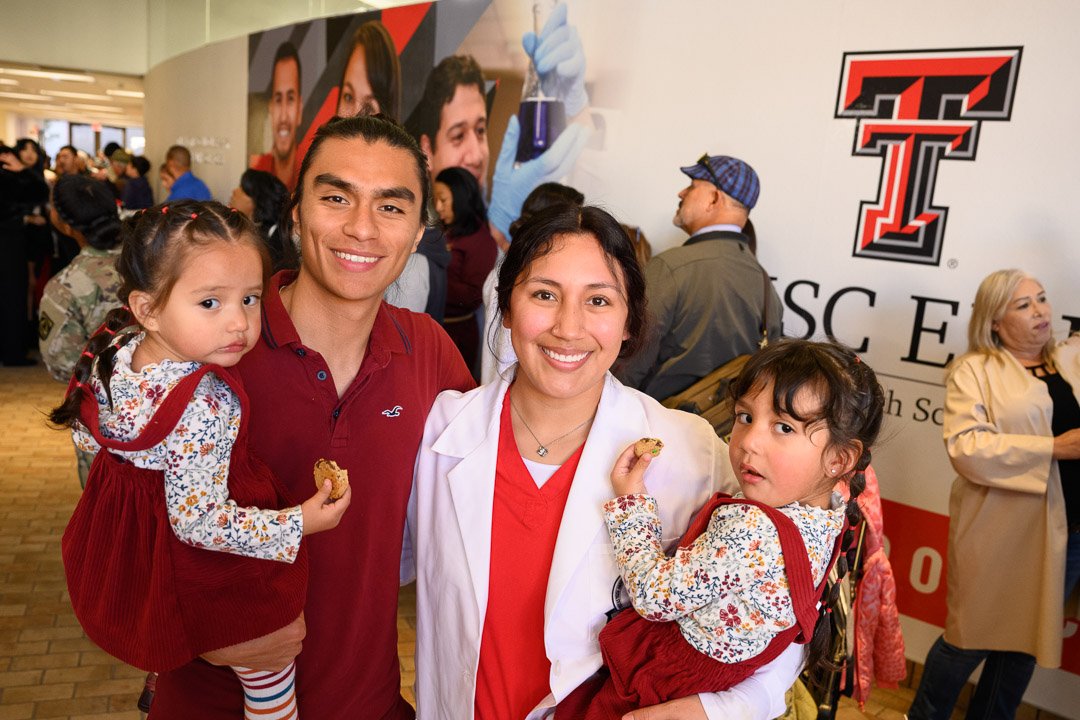
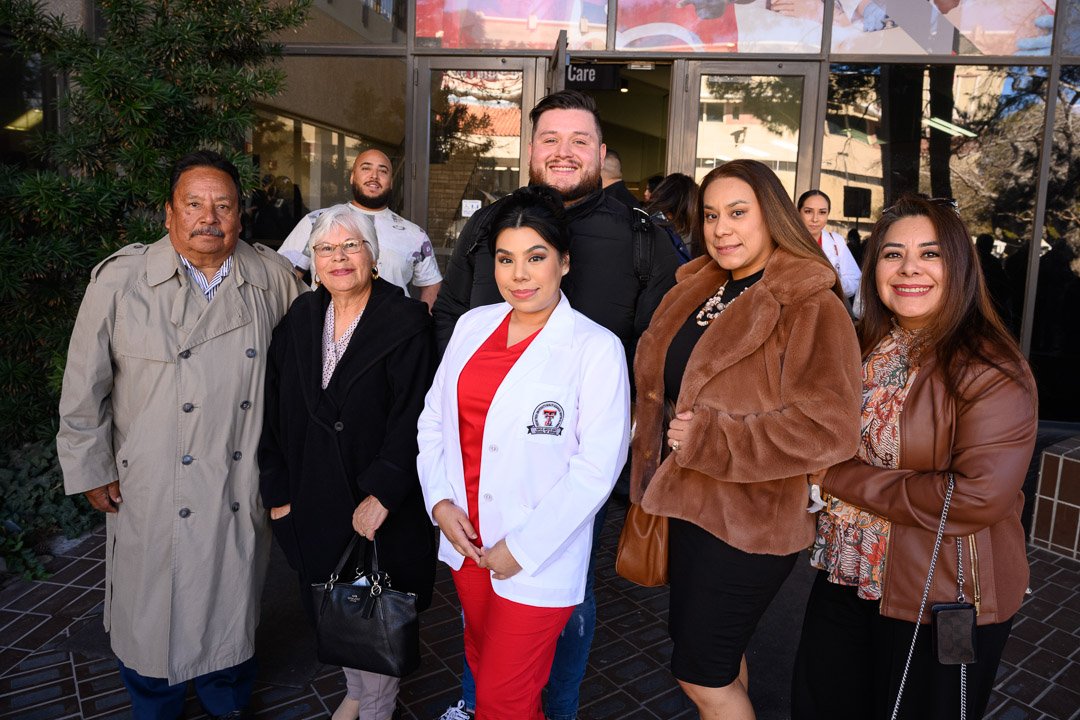
Hunt School of Nursing’s Fifth Annual Winter White Coat Ceremony Welcomes 78 New Students
Students from our Borderplex region join school’s Accelerated B.S.N. program to address acute nursing shortage
Dressing for success, 78 first-year nursing students donned white coats symbolizing their devotion to the healing profession.
The Hunt School of Nursing held its fifth annual winter white coat ceremony on Tuesday, Jan. 9. The ceremony, conducted on the Texas Tech Health El Paso campus, welcomed students into the region’s only 16-month Accelerated B.S.N. program.
In an area where the nurse shortage looms large, the majority of students are from our Borderplex region. The ceremony is a rite of passage for these future nurses and a testament to the strong bonds between the school and our community.
Stephanie Woods, Ph.D., RN, dean of the Hunt School of Nursing, reflected on the 5th anniversary of the white coat ceremony, emphasizing its significance beyond a rite of passage.
“The white coat tradition not only marks the entry of students into the profession of nursing, but also their journey through our rigorous 16-month Accelerated B.S.N. program,” said Dr. Woods. “In the face of a prevailing nurse shortage every new nurse is critical. The ceremony symbolizes a commitment to science, compassion and humility in community care, with the white coat embodying this ethos. Hunt School of Nursing is one of the few, if not the only nursing school in the region with this tradition. It allows the new student to take on a new identify and commitment. It is impactful on our students, their families and our community.”
Following a tradition established by the school in 2019, each new student received a white coat embroidered with the Hunt School of Nursing seal. It’s a cloak of compassion, reminding each of the importance of humility when it comes to community care during their careers. Their stethoscopes, which they received earlier, represent science. Together, they provide the pillars of their training.
El Paso’s nursing shortage is a critical challenge with far-reaching consequences for the health care system in our region. El Paso has a deficit of hundreds of registered nurses, a shortage that is projected to grow by an alarming rate in the next decade.
Addressing this deficiency translates into shorter wait times for patients, reduced patient-to-nurse ratios and improved quality of care. Growing the number of nurses will reduce existing health disparities, with El Pasoans most in need experiencing greater access to essential health care services.
The decision by Texas Tech Health El Paso to offer an accelerated nursing program is a strategic response to a pronounced health care crisis in our region. El Paso's nursing shortage, reflecting a broader national trend, is compounded by a rapidly aging population. The U.S. Census Bureau estimates 16% of our region's inhabitants will be age 65 or older by 2030. Coupled with a growing population that’s expected to exceed one million soon, the demand for health care services is set to rise sharply. According to the Texas Department of State Health Services, Texas faces an anticipated shortage of 60,000 registered nurses by 2030.
The Accelerated B.S.N. program at the Hunt School of Nursing is designed to address these alarming statistics by providing an intensive, 16-month pathway to licensure, enabling a more rapid response to the health care needs of our Borderplex region and beyond.
For the new Hunt School of Nursing students, enhanced health care access commences with the white coat ceremony.
“Nursing is what I've wanted to do my whole life,” said CheLinda Rivas, a retired Army major. “This ceremony is meaningful to me because it marks a long journey and signifies the official transition into the medical profession to serve others and promote health.”
A mother of five, nursing is her second career. Since childhood, she has aspired to deliver babies. In 2011, following the heartrending death of one of her sisters during childbirth, she committed herself to becoming a midwife.
“I knew after going through that experience, I was fully prepared to navigate the complexities of being a midwife,” Rivas said. “I aim to impact women's health and be a support for mothers and families, as childbirth is the closest a woman ever gets to life and death simultaneously. While it can be a challenging time, it is also a beautiful time.”
Rivas isn’t the only nursing student who wants to remain in our region following graduation in 16 months. El Paso native Ernezzto Josué Rizo attended Burges Early College High School and earned his associate degree from El Paso Community College. His mother was his inspiration to join the nursing profession.
“My mom is a nurse,” said Rizo. “As a young kid, I was exposed to the medical field seeing how hard she studied. Mom's a huge role model to me.”
As for the future, Rizo intends on serving our Borderplex residents following graduation.
“Once I become a nurse, I want to give back to our community and help as much as I can,” Rizo said. “Then who knows? Nursing is such a big field with big opportunities. I might become a traveling nurse later. But for sure, I do want to stay in El Paso. I love my city and I love our community.”
About Texas Tech Health El Paso
Texas Tech Health El Paso is the only health sciences center on the U.S.-Mexico border and serves 108 counties in West Texas that have been historically underserved. It’s a designated Title V Hispanic-Serving Institution, preparing the next generation of health care heroes, 48% of whom identify as Hispanic and are often first-generation students.
Established as an independent university in 2013, Texas Tech Health El Paso is a proudly diverse and uniquely innovative destination for education and research.
With a mission of eliminating health care barriers and creating life-changing educational opportunities for Borderplex residents, Texas Tech Health El Paso has graduated over 2,400 doctors, nurses and researchers over the past decade, and will add dentists to its alumni beginning in 2025. For more information, visit ttuhscepimpact.org.
